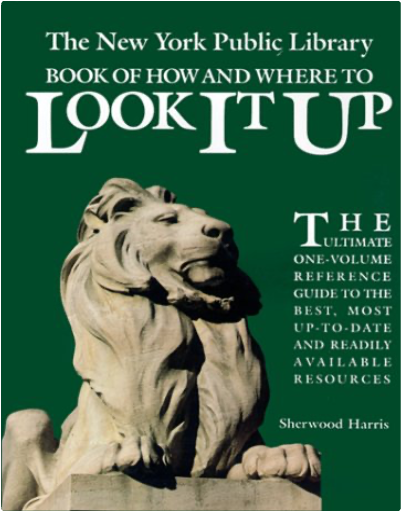 The New York Public Library Book of How and Where to Look It UpSherwood Harris The New York Public Library Book of How and Where to Look It UpSherwood Harris Today, the vast amount of inforamtion preserved in and available through public libraries, private associations, electronic databases, photo archives, museums, and special collections makes ready information retrieval a problem. Now here is a veritable "Yellow Pages" of the best book, periodical, electronic, public and private information resources. 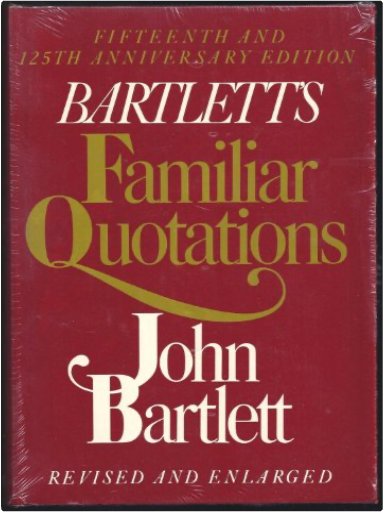 Bartlett's Familiar QuotationsJohn Bartlett, Emily Morison Beck Bartlett's Familiar QuotationsJohn Bartlett, Emily Morison Beck This 15th edition of the book, first published in 1855, has been expanded to include more than 22,500 quotations and more than 400 new authors both historical and contemporary - from Susan B.Anthony and Muhammad Ali to Mozart and Mick Jagger. It has been redesigned in a larger, more readable format which accommodates more quotations in less space and for the first time supplies each quotation with a number for ready index reference. More translations from non-British works appear in this edition, besides some fresh translations of others already in the text. For the first time, the enlarged section of anonymous entries includes sea shanties, cowboy songs and spirituals, as well as traditional poems and chants from Africa and from North American Indians. Even the Bible, classical and Shakespearean sections have been examined and expanded, along with the sections of Buddhist and Sanskrit writings and the Koran. 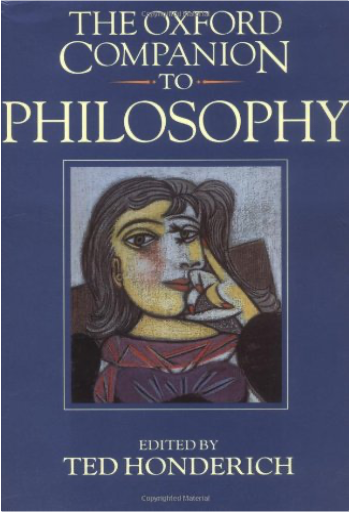 The Oxford Companion to PhilosophyTed Honderich The Oxford Companion to PhilosophyTed Honderich Philosophy can be intriguing—and at times baffling. It deals with the central problems of the human condition—with important questions of free will, morality, life after death, the limits of logic and reason—though often in rather esoteric terms. Now, in The Oxford Companion to Philosophy, readers have the most authoritative and engaging one-volume reference work on philosophy available, offering clear and reliable guidance to the ideas of all notable philosophers from antiquity to the present day, and to the major philosophical systems around the globe, from Confucianism to phenomenology.
Here is indeed a world of thought, with entries on idealism and empiricism, ethics and aesthetics, epicureanism and stoicism, deism and pantheism, liberalism and conservativism, logical positivism and existentialism—over two thousand entries in all. The contributors represent a veritable who's who of modern philosophy, including such eminent figures as Isaiah Berlin, Sissela Bok, Ronald Dworkin, John Searle, Michael Walzer, and W. V. Quine. We read Paul Feyerabend on the history of the philosophy of science, Peter Singer on Hegel, Anthony Kenny on Frege, and Anthony Quinton on philosophy itself. We meet the great thinkers—from Aristotle and Plato, to Augustine and Aquinas, to Descartes and Kant, to Nietzsche and Schopenhauer, right up to contemporary thinkers such as Richard Rorty, Jacques Derrida, Luce Iragaray, and Noam Chomsky (over 150 living philosophers are profiled). There are short entries on key concepts such as personal identity and the mind-body problem, major doctrines from utilitarianism to Marxism, schools of thought such as the Heidelberg School or the Vienna Circle, and contentious public issues such as abortion, capital punishment, and welfare. In addition, the book offers short explanations of philosophical terms (qualia, supervenience, iff), puzzles (the Achilles paradox, the prisoner's dilemma), and curiosities (the philosopher's stone, slime). Almost every entry is accompanied by suggestions for further reading, and the book includes both a chronological chart of the history of philosophy and a gallery of portraits of eighty eminent philosophers, from Pythagoras and Confucius to Rudolf Carnap and G.E. Moore. And finally, as in all Oxford Companions, the contributors also explore lighter or more curious aspects of the subject, such as "Deaths of Philosophers" (quite a few were executed, including Socrates, Boethius, Giordano Bruno, and Thomas More) or "Nothing so Absurd" (referring to Cicero's remark that "There is nothing so absurd but some philosopher has said it"). Thus the Companion is both informative and a pleasure to browse in, providing quick answers to any question, and much intriguing reading for a Sunday afternoon.
An indispensable guide and a constant source of stimulation and enlightenment, The Oxford Companion to Philosophy with appeal to everyone interested in abstract thought, the eternal questions, and the foundations of human understanding. 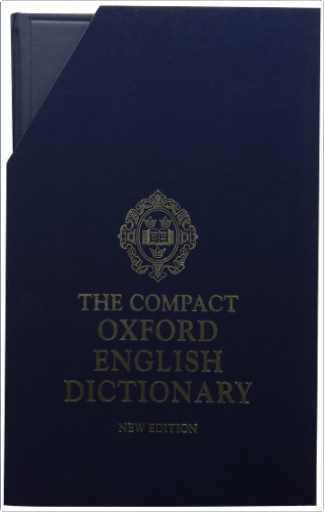 The Compact Edition of The Oxford English Dictionary, Complete Text Reproduced MicrographicallyE. S. C. Weiner, J. A. Simpson The Compact Edition of The Oxford English Dictionary, Complete Text Reproduced MicrographicallyE. S. C. Weiner, J. A. Simpson Note: For this ISBN, kindly use the magnifying glass which is provided along with the book.
When the twenty-volume Oxford English Dictionary, Second Edition, appeared years ago, the public response was extraordinary. The AP and UPI announced publication over their newswires. Time and Newsweek ran full-page articles. The New Yorker published an extensive essay. Virtually every major paper in American and in Great Britain covered the event. And from every corner, the praise was lavish. Time called it "a scholarly Everest." Newsweek, "a celebration of language." And Herbert Mitgang, in The New York Times, called the new OED "the last word on words" and "the arbiter of the English language as it is read and spoken all over the world."
Now comes the Compact Edition of OED II, which captures all the wealth of scholarship found in the original edition in just one volume. The Compact is not an abridgement, but a direct photoreduction of the entire 20-volume set, with nine pages of the original on every nine-by-twelve page of the Compact (a magnifying glass comes with it). As in the Second Edition, the Compact combines in one alphabetical sequence the sixteen volumes of the first OED and the four Supplements—plus an extra five thousand new words to bring this monumental dictionary completely up to date. And it is monumental, with definitions of 500,000 words, 290,000 main entries, 137,000 pronunciations, 249,300 etymologies, 577,000 cross-references, and over 2,412,000 illustrative quotations. But as large as it is, perhaps its most important feature is its historical focus. The OED records not only words and meanings currently in use but also those that have long been considered obsolete. Moreover, under each definition of a word is a chronologically arranged group of quotations that illustrate the word's usage down through the years, beginning with its earliest known appearance. The result is a dictionary that offers unique insight into the way our language has, over the centuries, grown, changed, and been put to use.
More than 100 years in the making, The Oxford English Dictionary is now universally acknowledged as the world's greatest dictionary—the supreme arbiter on the usage and meaning of English words, a fascinating guide to the history and evolution of the language, and one of the greatest works of scholarship ever produced. The Washington Post has written that "no one who reads or writes seriously can be without the OED." Now with the Compact, the world's greatest dictionary is within the reach of anyone who wants one. 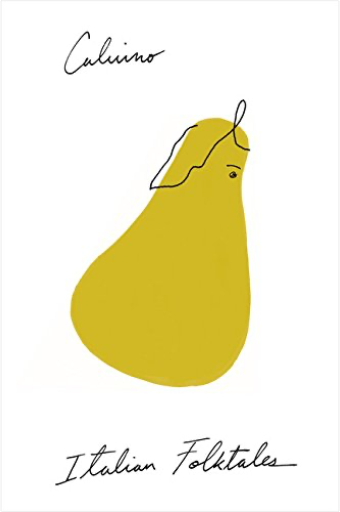 Italian FolktalesItalo Calvino Italian FolktalesItalo Calvino Chosen as one of the New York Times’s ten best books in the year of its original publication, this collection immediately won a cherished place among lovers of the tale and vaulted Calvino into the ranks of the great folklorists. Introduction by the Author; illustrations. Translated by George Martin. A Helen and Kurt Wolff Book 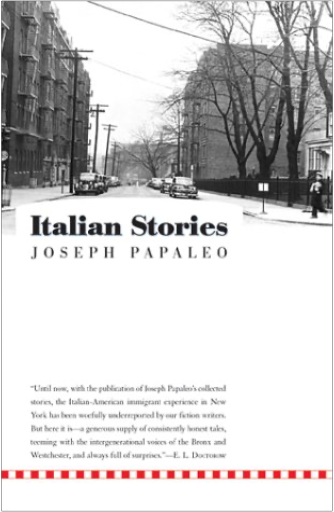 Italian Stories (American Literature (Dalkey Archive))Joseph Papaleo Italian Stories (American Literature (Dalkey Archive))Joseph Papaleo Paying homage to the Italian-American experience, Italian Stories celebrates an Italian neighbourhood in the Bronx during the 1930s and '40s, and mourns the loss of this ethnic identity with the migration of subsequent generations to the suburbs. With stories that are both melancholy and comic, Papaleo here explores the contradictory desires of assimilation: his characters want to live the life of the average American while maintaining a strong link to their rich heritage. In addition, Papaleo rails against the damaging stereotypes of Italian-Americans propagated by the media in movies and television. 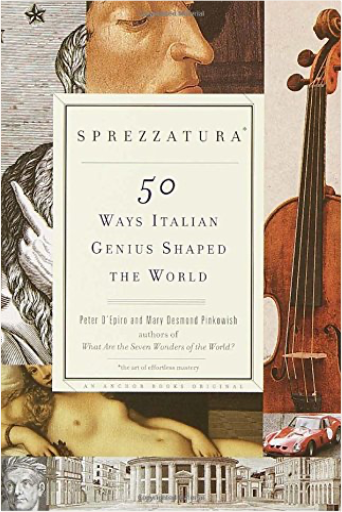 Sprezzatura: 50 Ways Italian Genius Shaped the WorldPeter D'Epiro, Mary Desmond Pinkowish Sprezzatura: 50 Ways Italian Genius Shaped the WorldPeter D'Epiro, Mary Desmond Pinkowish A witty, erudite celebration of fifty great Italian cultural achievements that have significantly influenced Western civilization from the authors of What Are the Seven Wonders of the World?
The word "sprezzatura," or the art of effortless mastery, was coined in 1528 by Baldassare Castiglione in The Book of the Courtier. No one has demonstrated effortless mastery throughout history quite like the Italians. From the Roman calendar and the creator of the modern orchestra (Claudio Monteverdi) to the beginnings of ballet and the creator of modern political science (Niccolò Machiavelli), Sprezzatura highlights fifty great Italian cultural achievements in a series of fifty information-packed essays in chronological order. 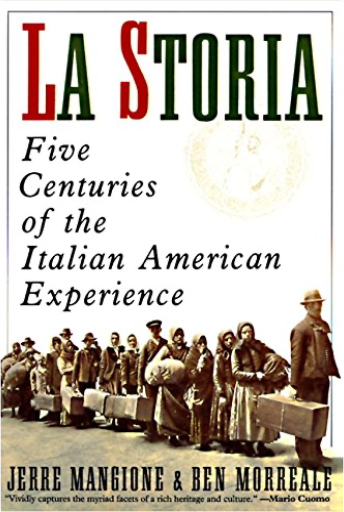 La Storia: Five Centuries of the Italian American ExperienceJerre Mangione La Storia: Five Centuries of the Italian American ExperienceJerre Mangione From the early Italian adventurers who played an important role in the European expansion across the Atlantic to the political and business leaders of the 1990s, this book tells a dramatic story. The heart of the story is the mass migration that took place between 1880 and 1924, when a whole culture left its ancient roots to settle in the cities and towns of America. 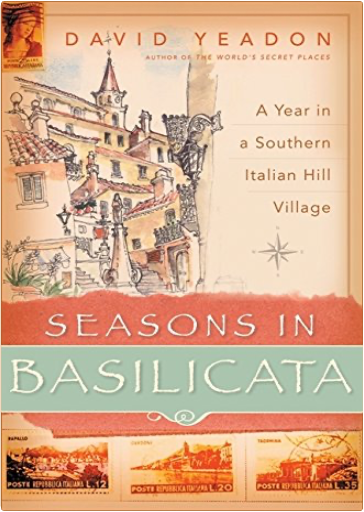 Seasons in Basilicata: A Year in a Southern Italian Hill VillageDavid Yeadon Seasons in Basilicata: A Year in a Southern Italian Hill VillageDavid Yeadon A year in the life of a remote Southern Italian hill town rich with local characters, strange pagan–laced customs, and very different from the more gentrified northern Italy of Tuscany and Umbria.
Award–winning travel writer/illustrator, David Yeadon and his wife Anne embarked on an exploration of the wild mountainous "lost word" of Basilicata in the arch of Italy's boot. What was intended as a brief sojourn turned into a far longer and far more intriguing residency across the seasons. The Yeadons made a home here in the ancient and alluring hill village of Aliano where Carlo Levi, author of the world–renowned book Christ Stopped at Eboli, was imprisoned by Mussolini during part of World War II for anti–fascist activities.
They became immersed in today's rich tapestry of people, lifeways, traditions, festivals, the rituals and rhythms of the grape and olive harvests, unique culinary delights, and other enticing peculiarities of place. At the same time, they discovered that much of the pagan strangeness Carlo Levi and other notable authors revealed here, still lurks beneath the beguiling surface of Basilicata. Evocative illustrations and richly colorful, often humorous tales of life in their hill village form the framework for Seasons in Basilicata.
Described by one reviewer as "one of our best travel writers," David Yeadon has shifted focus in this book to a far more intimate portrait of a single uniquely intriguing place. Tim Cahill found Yeadon "a very congenial travelling companion," Jan Morris praised his books as "full of strange, moving and entertaining experiences," and Kirkus celebrated them as "big, vigorous and hugely entertaining." |
 The New York Public Library Book of How and Where to Look It UpSherwood Harris
The New York Public Library Book of How and Where to Look It UpSherwood Harris 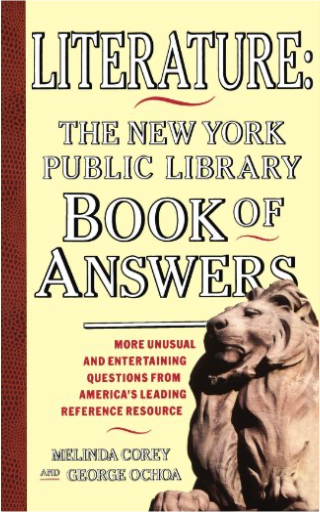 Literature: New York Public Library Book of AnswersMelinda Corey, George Ochoa
Literature: New York Public Library Book of AnswersMelinda Corey, George Ochoa 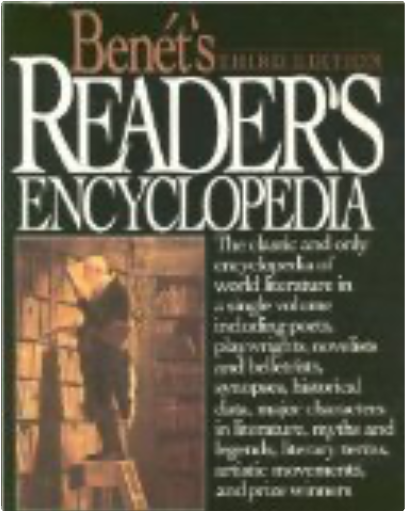 Benet's Reader's EncyclopediaGeorge Perkins, Barbara Perkins, Philip Leininger
Benet's Reader's EncyclopediaGeorge Perkins, Barbara Perkins, Philip Leininger 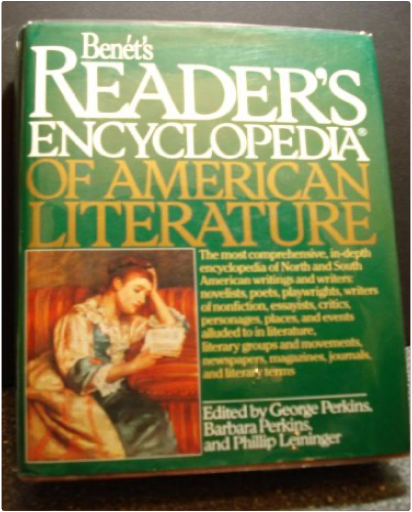 Benet's Reader's Encyclopedia of American LiteratureGeorge, Barbara Perkins, & Philip Leininger, eds Perkins
Benet's Reader's Encyclopedia of American LiteratureGeorge, Barbara Perkins, & Philip Leininger, eds Perkins  Bartlett's Familiar QuotationsJohn Bartlett, Emily Morison Beck
Bartlett's Familiar QuotationsJohn Bartlett, Emily Morison Beck  The Oxford Companion to PhilosophyTed Honderich
The Oxford Companion to PhilosophyTed Honderich  The Compact Edition of The Oxford English Dictionary, Complete Text Reproduced MicrographicallyE. S. C. Weiner, J. A. Simpson
The Compact Edition of The Oxford English Dictionary, Complete Text Reproduced MicrographicallyE. S. C. Weiner, J. A. Simpson  Italian FolktalesItalo Calvino
Italian FolktalesItalo Calvino  Italian Stories (American Literature (Dalkey Archive))Joseph Papaleo
Italian Stories (American Literature (Dalkey Archive))Joseph Papaleo  Sprezzatura: 50 Ways Italian Genius Shaped the WorldPeter D'Epiro, Mary Desmond Pinkowish
Sprezzatura: 50 Ways Italian Genius Shaped the WorldPeter D'Epiro, Mary Desmond Pinkowish  La Storia: Five Centuries of the Italian American ExperienceJerre Mangione
La Storia: Five Centuries of the Italian American ExperienceJerre Mangione  Seasons in Basilicata: A Year in a Southern Italian Hill VillageDavid Yeadon
Seasons in Basilicata: A Year in a Southern Italian Hill VillageDavid Yeadon  Made with Delicious Library
Made with Delicious Library